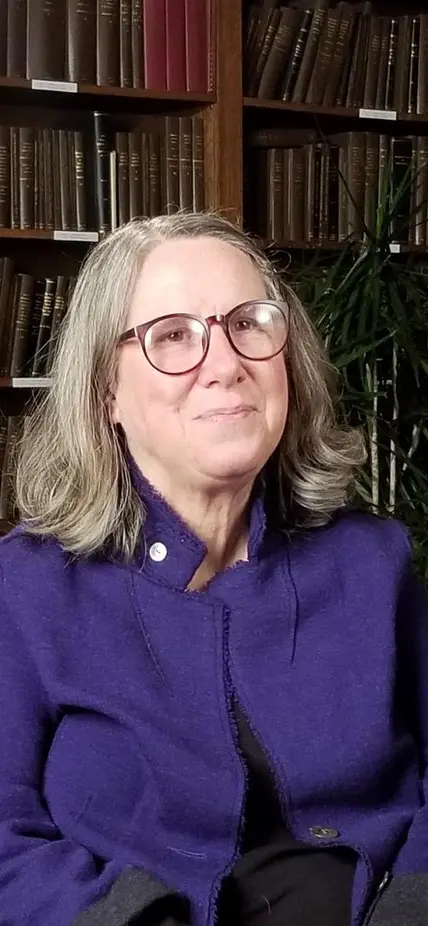Washington, DC—Marilyn Louise Fogel, an isotope geochemist whose work touched on a broad scope of subjects ranging from astrobiology to paleoecology and climate change to human health, died Wednesday after a prolonged battle with ALS. She was 69.
Fogel spent 33 years as a Staff Scientist at Carnegie’s research campus in Washington D.C., at what is now the Institution’s Earth and Planets Laboratory, as well as a short stint as a visiting scholar at Carnegie’s Department of Plant Biology in California. She developed the use of stable isotopes to trace astrobiological, biogeochemical, and ecological processes, including the impact of climate variation on ancient ecosystems, species migration, diet, and organics found within meteoritic samples.
“Marilyn was a remarkable and exemplary Carnegie scientist. Driven by her deep curiosity about nature, she fearlessly pursued new knowledge by developing novel methods to probe isotopic and geochemical phenomena across a broad range of disciplines. She was deeply committed to interdisciplinary collaboration and to mentoring her colleagues, and, in so doing, had an extraordinary impact on many careers,” said Carnegie President Eric D. Isaacs. “Her legacy will live on for decades, both here at Carnegie and throughout the scientific community.”
Fogel’s research crossed not only disciplinary boundaries, but geographical borders as well, taking her from the frozen arctic, to the tropics, to the deserts of the Southern Hemisphere. Using samples from these disparate locations, she probed questions as diverse as the origins of life on our planet, the search for signatures of life on other worlds, how humans caused extinction events in Australia, and to the changing dynamics of whole ecosystems in Belize.
In recent years, Fogel’s work included research on the human gut microbiome and drought-related ecosystem changes in California. She left Carnegie in 2012 to become Chair of the Life and Environmental Sciences Unit of the U.C. Merced School of Natural Sciences. In 2016 she was named Director of the EDGE (Environmental Dynamics & Geo-Ecology) Institute at U.C. Riverside, where she began to dedicate herself to study of the Anthropocene and the impact of humans on the modern world.
Although Fogel’s training was in biology—she received a Ph.D. in botany and marine science from the University of Texas Austin and a bachelor’s degree in biology from Penn State University—her commitment to interdisciplinary research was apparent from the earliest stages of her career. When she finished her doctorate, Fogel’s options included a postdoctoral position in plant physiology at the University of Georgia or one with geochemist Thomas C. Hoering at Carnegie’s former Geophysical Laboratory; she said the choice was easy.
“The scope of her scientific interests was broad, but her pursuit of them was deep, as is evidenced by the tremendous impact of her work and her many awards and recognitions,” said Michael Walter, Director of Carnegie’s Earth and Planets Laboratory.
Earlier this year, Fogel received the Geochemical Society’s highest honor, the Victor Moritz Goldschmidt Award, and in 2013 she was the first woman selected for the society’s Alfred Treibs Medal. Additionally, she was a member of the National Academy of Sciences and a fellow of the American Association for the Advancement of Science and the American Geophysical Union.
Fogel was also a devoted mentor to generations of scientists of every age and career stage. Her approach and enthusiasm inspired generations of interns, graduate students, postdocs, and peers. This dedication built a vast network of connections over the years. Some of Fogel’s colleagues estimate that she collaborated with more than a third of the isotope geochemistry labs around the world during the course of her prolific career.
“Marilyn was one of the most dedicated scientists and mentors I’ve known. She inspired everyone who interacted with her, regardless of their level of experience,” said Carnegie Staff Scientist Anat Shahar, an isotope scientist herself. “She made sure that everyone in her lab was tackling important scientific problems while having fun. She was truly a pioneer in all aspects of science—her research, her mentoring style, and her activism.”
After her diagnosis with ALS, Fogel’s commitment to sharing her scientific journey with mentees and colleagues manifested in her blog and subsequent books, Isotope Queen—Biogeochemistry Memoir, in which she offered career advice, told stories about her own research path, fieldwork adventures, significant discoveries, memorable collaborators, and more.
“A few years back, we organized a meeting on our campus to celebrate Marilyn’s legacy—both her tremendous research productivity and the enormous scientific family she’d built up. It was a real testament to the size of her scientific footprint. Everyone whose career had ever touched hers wanted to come and pay tribute to Marilyn’s impact on their work," recalled Andrew Steele, a Carnegie Staff Scientist and long-time colleague and friend. “Marilyn’s legacy is one that cannot be understated, she was a beacon of light to those she worked with and to everyone she met.”
Fogel is survived by her husband, Chris, and children Dana and Evan—who often accompanied her on fieldwork trips and in the lab, where they would help gather samples and analyze data—as well as by her mother, Florence.
Remembering Marilyn Fogel
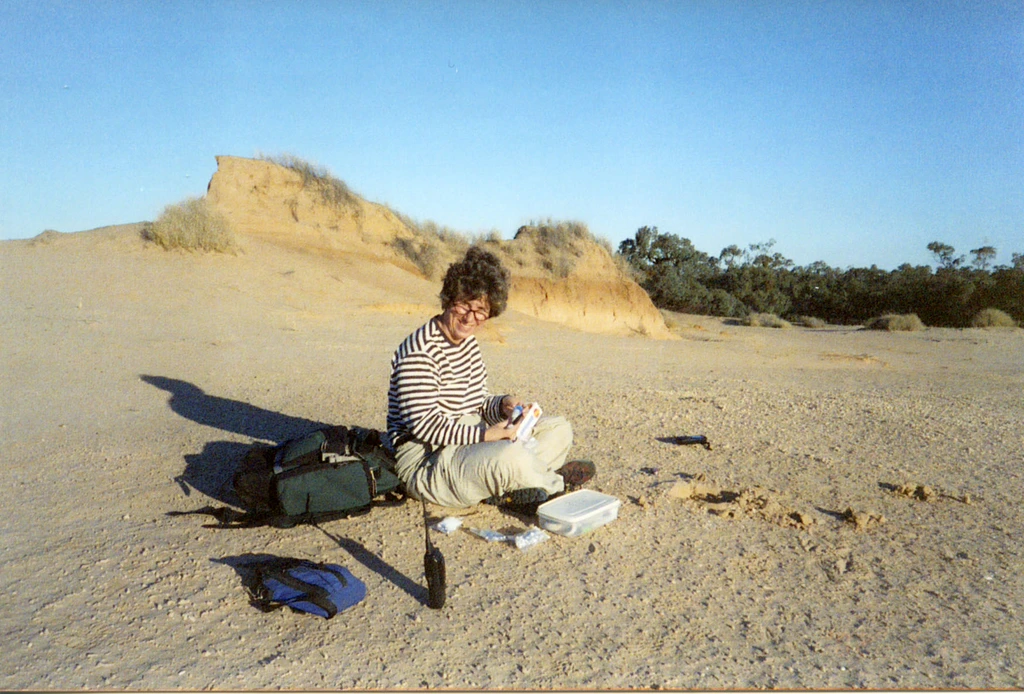
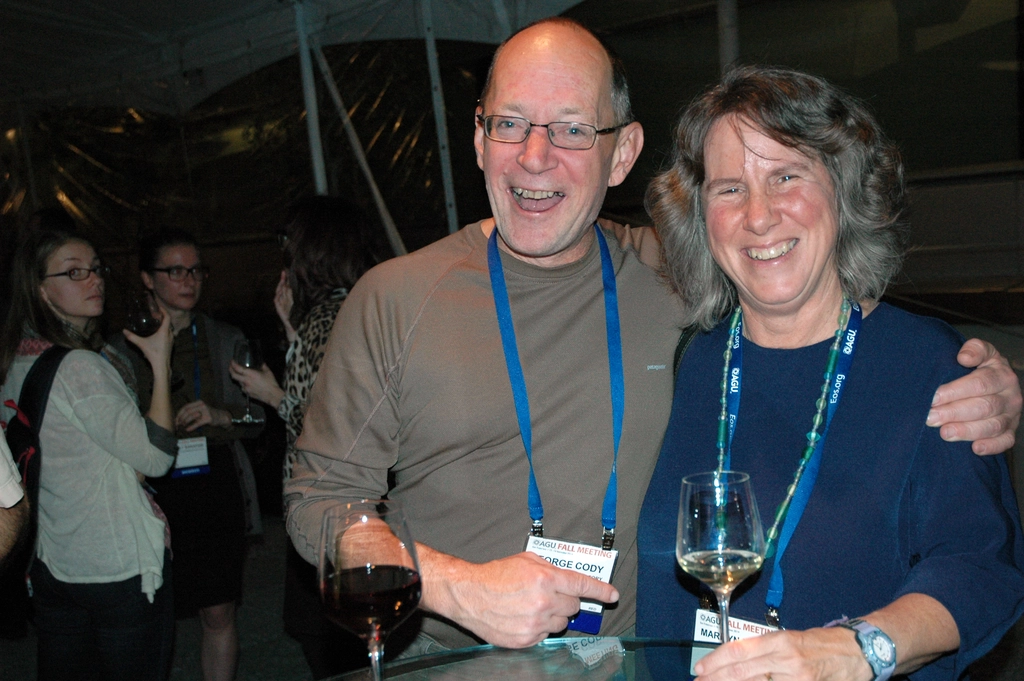
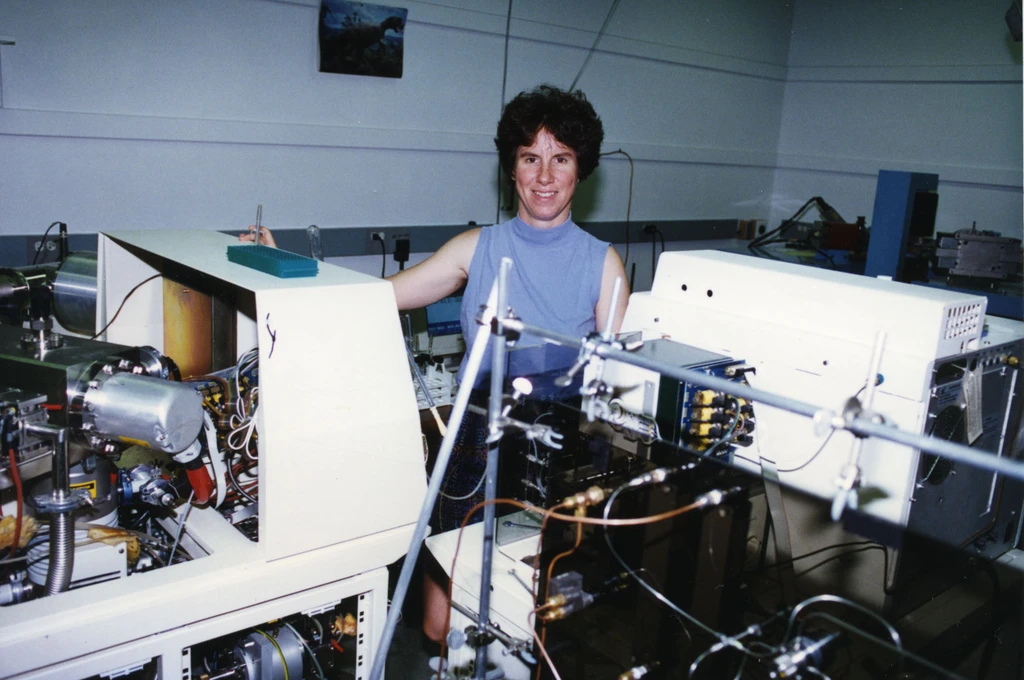
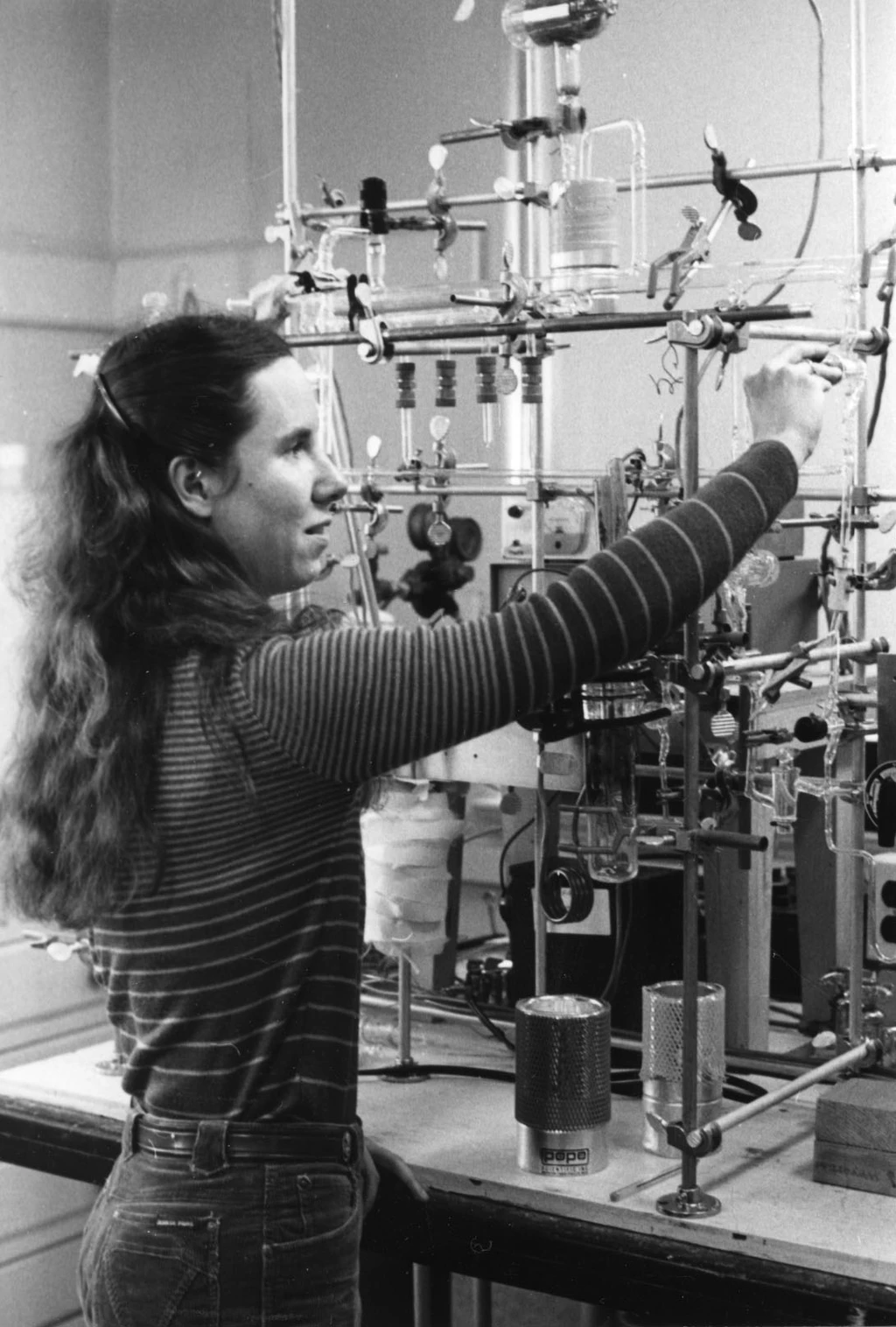
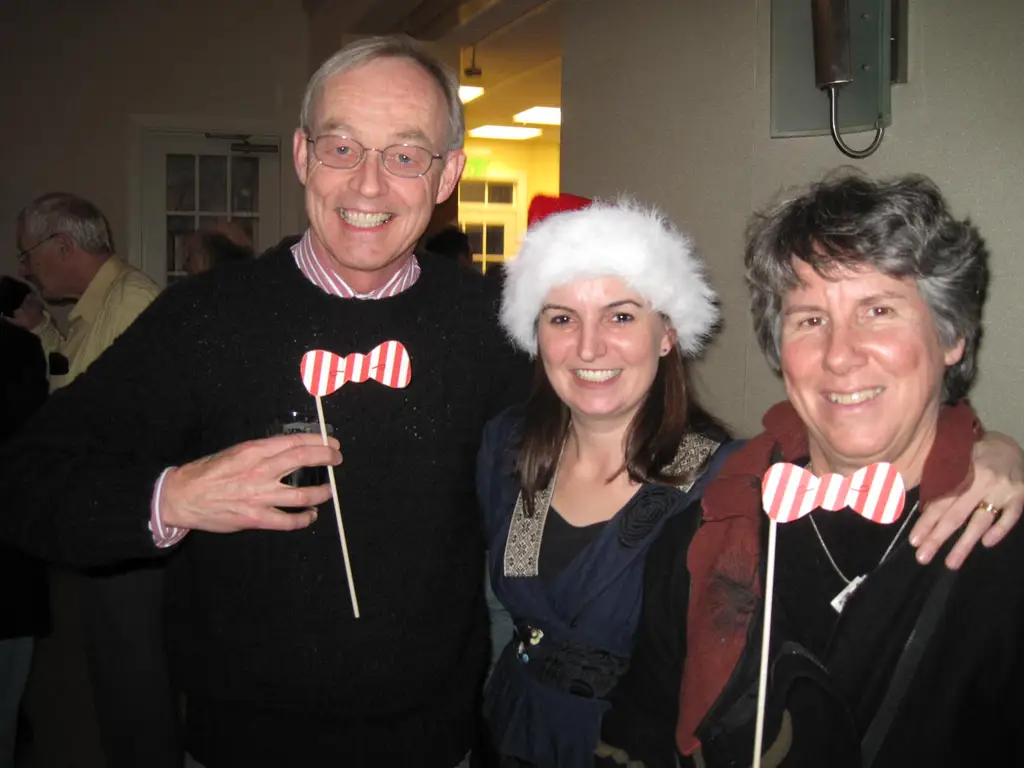
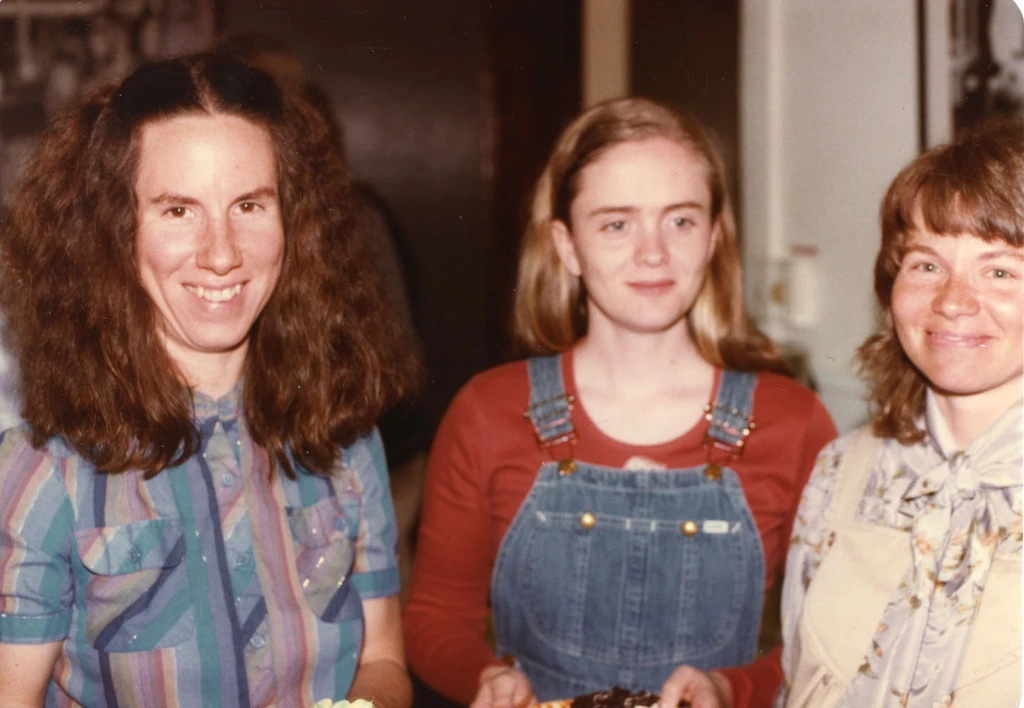
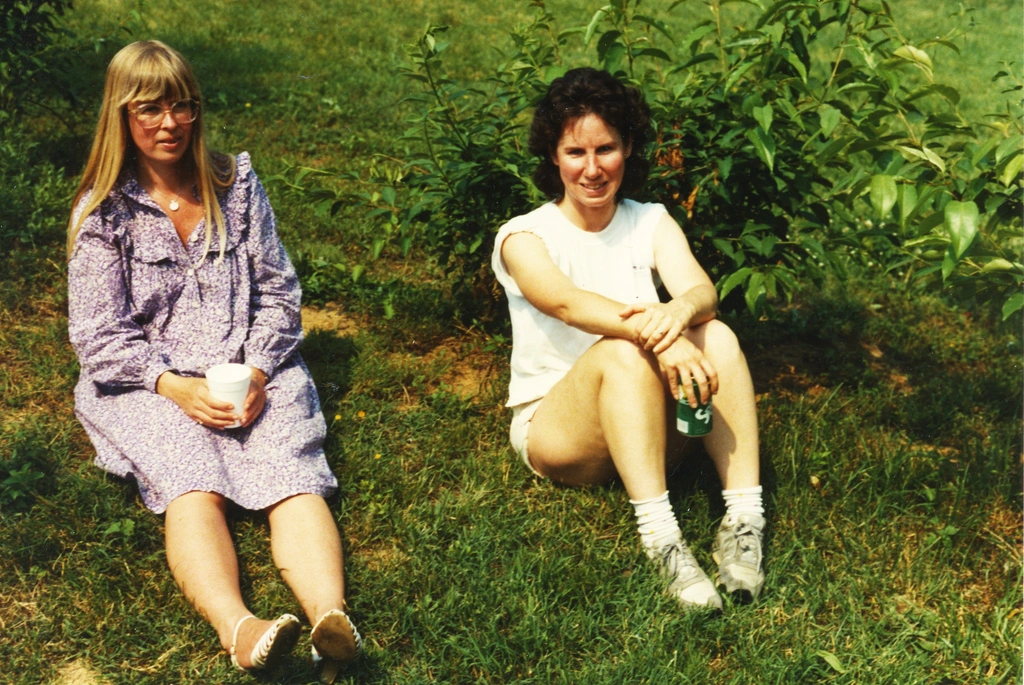
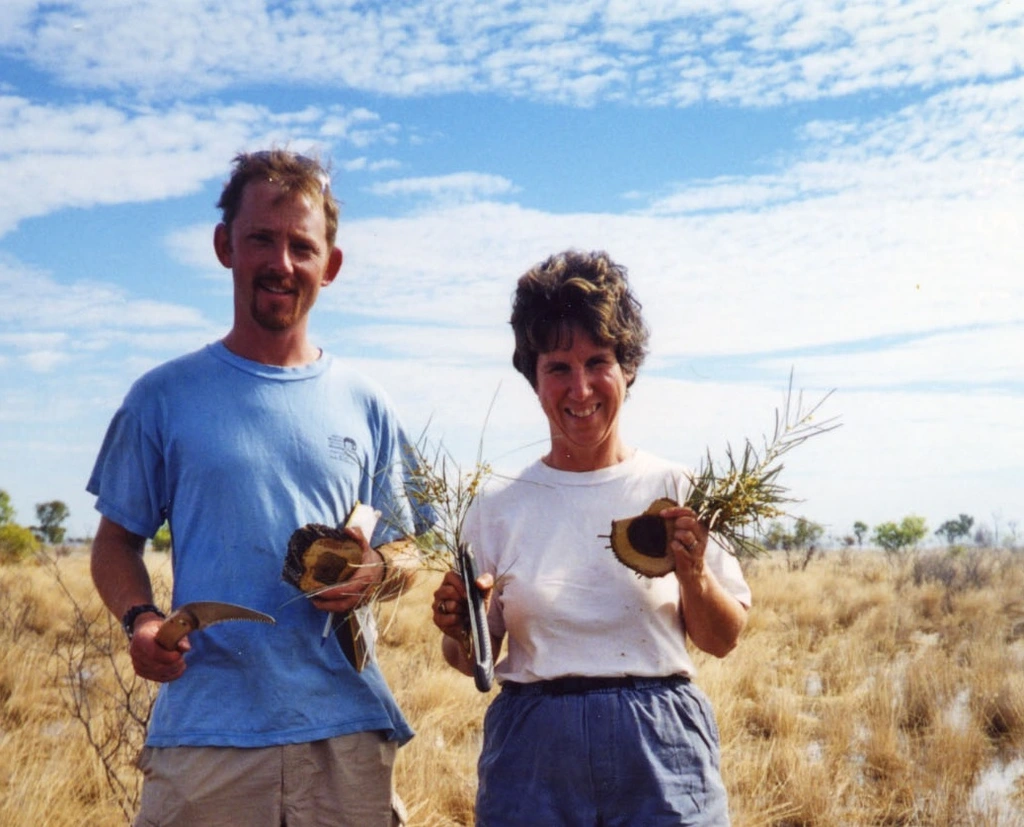
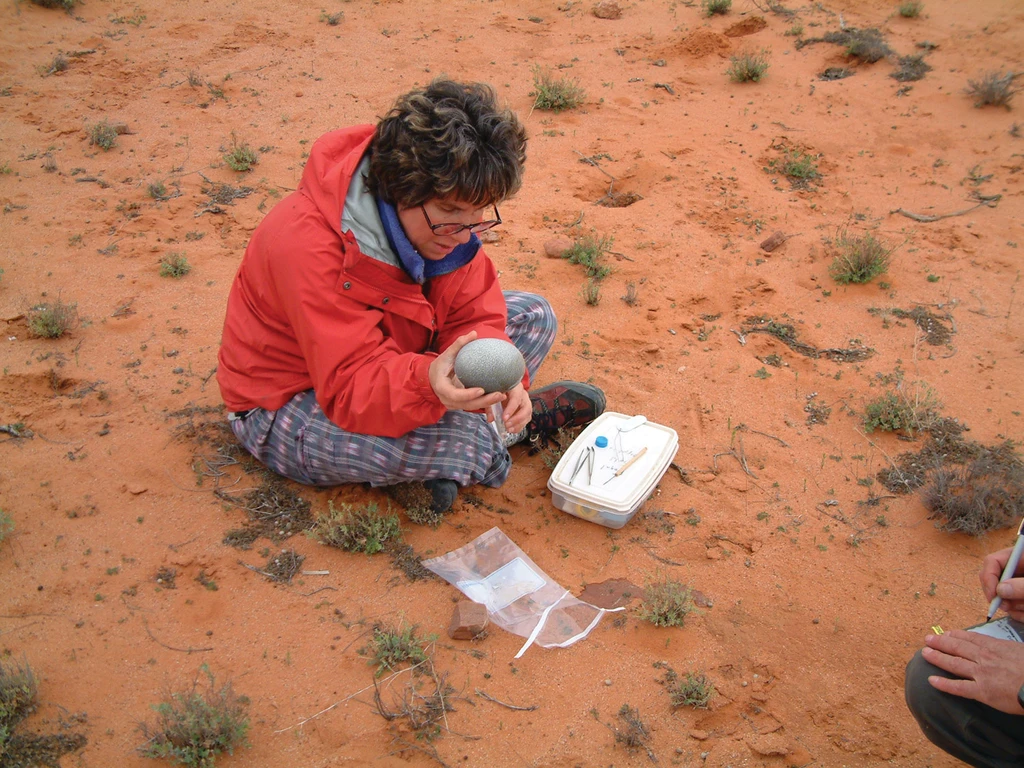
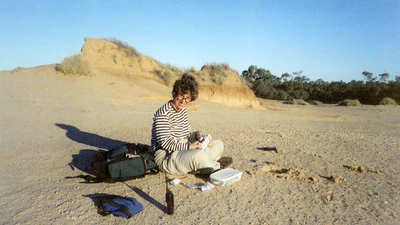
GL_Fogel-M_003_20030000.jpg
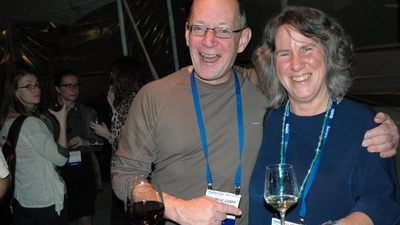
20141215_DTMGL_AGUReception_15.jpg
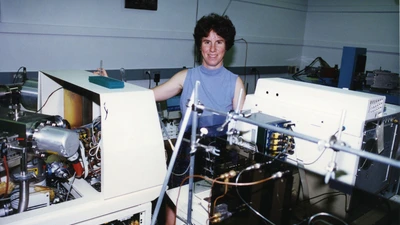
GL_Fogel-M_002_20000000.jpg
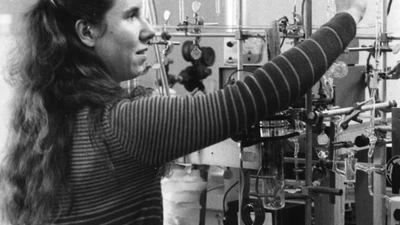
GL_Fogel-M_001_nd.jpg
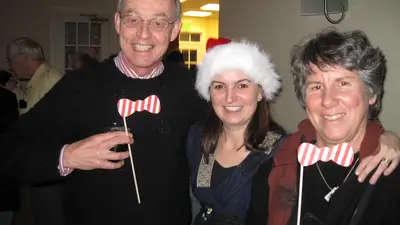
20121214_DTMGL_HolidayParty_IMG_3348.jpg
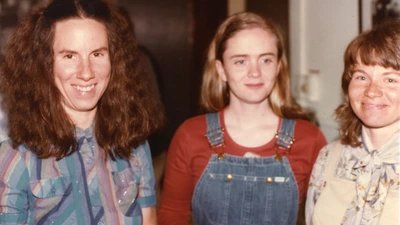
GL_Fogel-M_010_19840000.jpg
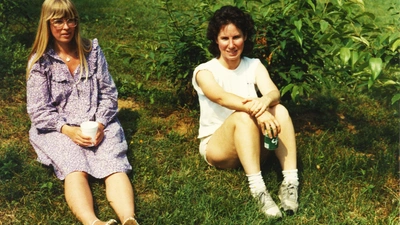
GL_Fogel-M_016_Wright_19870000_Color (1).jpg
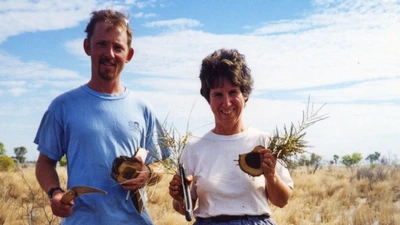
Marilyn and Matt.jpg
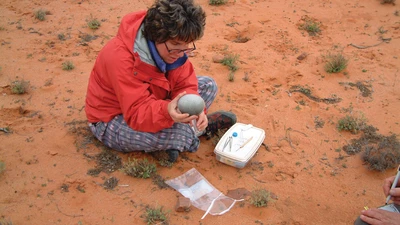
2005_GL_FogelEmuEgg_PST01760.jpg
